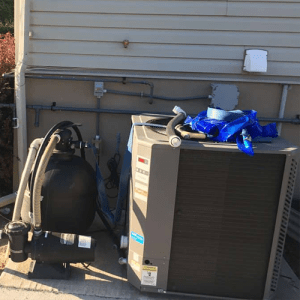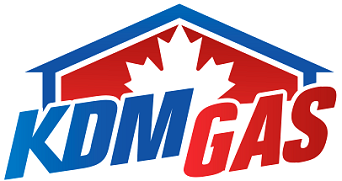 Pool heaters can break down for various reasons, leading to issues with their functionality. Some common ways a pool heater can break include:
Pool heaters can break down for various reasons, leading to issues with their functionality. Some common ways a pool heater can break include:
Thermostat Problems: The thermostat controls the temperature of the pool water. Malfunctions in the thermostat can lead to incorrect temperature readings, causing the heater to overheat or not heat the water adequately.
Ignition Issues: Pool heaters, especially gas-powered ones, rely on proper ignition to start the heating process. Ignition problems, such as a faulty igniter or gas supply issues, can prevent the heater from turning on.
Pressure Switch Failures: Many pool heaters have pressure switches that ensure proper water flow before allowing the heating process to begin. If the pressure switch malfunctions, the heater might not activate, even if the water flow is sufficient.
Burner Problems: Gas-powered heaters have burners that generate heat. Clogs, rust, or wear and tear on the burner can lead to inefficient or uneven heating or even complete failure.
Circulation Issues: Adequate water circulation is crucial for pool heaters to work effectively. Blockages in the plumbing system, such as debris or buildup, can impede water flow and prevent the heater from functioning properly.
Corrosion: Pool heaters are exposed to water and chemicals, which can cause corrosion over time. Corrosion can damage components like the heat exchanger, leading to leaks and decreased efficiency.
Electrical Problems: Electric pool heaters can experience electrical issues such as faulty wiring, blown fuses, or damaged components. These problems can prevent the heater from receiving the necessary electrical power.
Heat Exchanger Leaks: The heat exchanger is a critical component that transfers heat from the heating source to the pool water. Corrosion or wear and tear can lead to leaks, reducing the heater’s effectiveness and potentially damaging other parts.
Thermistor Failures: Thermistors are sensors that monitor the temperature of the water and communicate with the heater’s control system. Malfunctioning thermistors can result in inaccurate temperature readings and improper heater operation.
Control Board Malfunctions: Modern pool heaters often have digital control boards that regulate various functions. If the control board malfunctions due to power surges, moisture, or other factors, the heater might not operate as intended.
Improper Maintenance: Regular maintenance is essential for the longevity and proper functioning of a pool heater. Neglecting maintenance tasks like cleaning, inspecting, and replacing worn-out parts can lead to breakdowns.
Freezing Damage: In colder climates, improper winterization of the pool and heater can lead to freezing damage. Water left in the heater can expand upon freezing, causing cracks and other issues.
To prevent these issues, it’s crucial to perform regular maintenance, follow manufacturer guidelines, and address any problems promptly through professional repair services.
